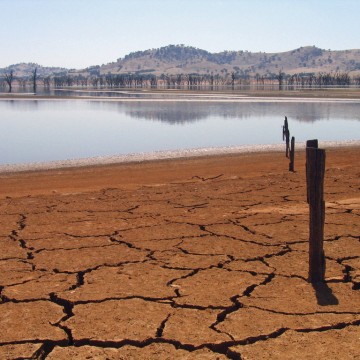What Your Doctor Should Be Telling You About Climate Change
Thursday, October 02, 2014

Photo Credit: Tim J Keegan via Compfight cc
Climate change seems so abstract at times. But a new report shows how climate change will greatly threaten our health.
The Oregon Health Authority just released its conclusions on how Oregonians’ health may be affected by rising temperatures and changes in precipitation. Mosquitos and other pests like warm, wet environs, and that's the forecast for the future.
Since 1895, average temperatures in Oregon have increased 1.5 degrees F, with spring thaw coming earlier and autumn frost later. Many diseases carried by insects—Lyme disease from ticks and West Nile Virus from mosquitoes to name two—are predicted to increase as temperatures continue to rise.
Optimistic, middle-of-the-road projections that assume global reductions in carbon emissions by 2100 still result in an average temperature rise of 4.3 degrees F. Boy, those bugs are going to love that!
While precipitation changes are harder to find agreement on, all forecasts agree that with warmer temperatures we will see more rain and less snow, leading to water shortages, especially in eastern and southern Oregon. Oregon’s agricultural economy depends on irrigation in the late summer; as rivers and reservoirs dry up, we could see shut downs like this year in the Klamath Valley, where efforts to ensure some water for migrating salmon have meant turning off the tap for farmers.
So, how will this affect our health? Here’s OHA’s list:
• Health impacts from drought, deteriorating air quality, wildfires, heat waves, waterborne disease, increased allergens and diseases spread by ticks and mosquitoes
• Increased and worsening chronic diseases such as asthma and mental health issues such as depression and anxiety.
• Air pollution from increased ground-level ozone and wildfire smoke could worsen respiratory illness.
• Water sources can become contaminated from drought or flooding.
• Drought in Oregon or elsewhere could cause food insecurity, especially among vulnerable populations.
• Hospitalizations increase during extreme heat events.
• In many rural communities, drought threatens family incomes and quality of life.
For our health’s sake, we should all be concerned about whether the world’s leaders respond to President Obama’s recent call at the United Nations for all countries to chip in to solving the climate change crisis by reducing carbon emissions from fossil fuel use.

Banner Photo Credit: woodleywonderworks via Compfight cc




Follow us on Pinterest Google + Facebook Twitter See It Read It